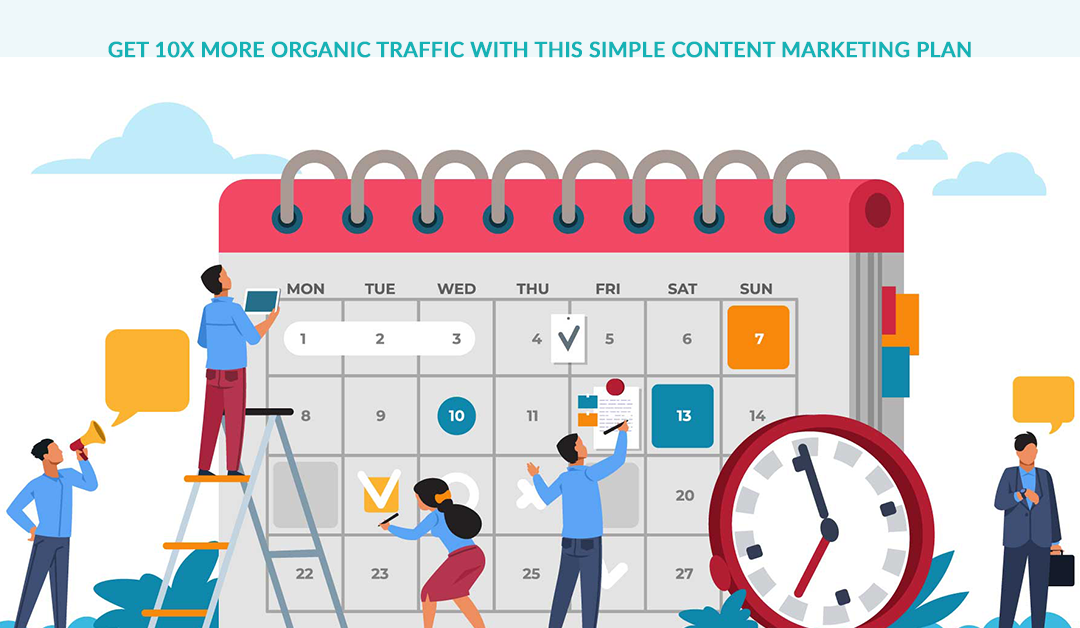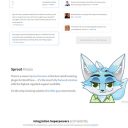This post was inspired by me seeing a post on Facebook. After looking at the sales page for Content Planning Toolkit and, seeing the price – I thought it was a no brainer to tell you why you need it and why I have also purchased it – at full price might I add – after all, its only $27.00 and we all need help in planning our content. 7 Biggest blogging mistakes
Blogging may sound time-consuming, but, if done correctly it can have huge benefits for your business. It will…
- Improve your website rankings
- Drive more traffic to your website
- Increase your trust and credibility
- Deliver you more leads and sales
The problem is, most business owners who get started with blogging FAIL. They might start well but then give up. Or they might get frustrated when they don’t see any results, and they (understandably) move onto something else…
It happens a lot, and it’s the reason I’m writing this post. I want you to avoid these common blogging pitfalls, so you can give yourself the best chance of success.
In this post, I’ve broken down the 7 most common mistakes you might make and how to overcome them.
- Zero Blogging Strategy
This is the number one reason why most businesses fail when it comes to creating consistent, high-quality content. They don’t have a plan.
Not knowing what to write ahead of time will always cause problems. Creating content takes time. And you don’t want to waste any scratching your head while staring at a blank page and hoping inspiration will hit.
Instead, you should plan your content ahead of time in bulk. This means you won’t waste any time when it comes to writing content.
There are lots of strategies you can use for planning content such as:
- Writing down all the questions you get on asked on a daily basis
- Reviewing certain tools that will help your audience
- Educating your audience by creating “How to” posts that improve their knowledge

For me, I’ve recently spent some time planning hundreds of content ideas in a very short space of time using this Content Planning Toolkit. I spent half an hour using this and had hundreds of content ideas.
- No Consistency with Your Blog
Keeping a strict content schedule is vital if you want to see results. But this often, this doesn’t happen. Businesses start well but then veer off track.
Yes, creating something is better than creating nothing BUT to get the best results it’s best to create content multiple times per month. If you can, write one article a week.

I know you’re busy and this may seem daunting, but it will help boost your online presence and you can start seeing some impressive results relatively quickly.
A few tips to help you keep to a schedule:
- Plan your content in advance using the method in step 1
- Publish your content on the same day each week to make it a habit
- Use a content schedule so know what will be posted in the weeks and months ahead
- Put an appointment in your diary for writing time
These tips should help keep you on track!
3. Creating content for your peers, not your audience
This is a really common mistake I see, pursuing content to impress other people in your industry. Bad idea.
You really shouldn’t care about “looking good” online to impress others.

I see articles all the time that don’t offer any value but still get published. Articles such as:
- “We won an award”
- “We took on a new team member”
- “We’re moving offices”
These articles don’t help anyone and only serve your ego.
Instead, forget about impressing anyone and create helpful content that informs, educates or entertains your IDEAL customers. Those are the ones who keep the lights on.
4. Using jargon
This one can happen by mistake but it does cause problems. Using industry jargon and technical terms can kill an article.
If I were to say to you, “We help you with CRO by improving CTAs, UX and copy. That might make sense to you and me, but it might not make sense to your ideal customers.

This often happens because you want people to know that you are an expert. There’s nothing wrong with that, but there is no point creating content that your audience cannot understand.
This only serves you. And your audience will leave confused and feeling stupid. Not great when you need them to get in touch with you!
- No Goals
Every piece of content you produce should have a goal. What would you like your reader to feel, think or do after they have read your article?
This so often gets missed. You might get hung up on grammar and spelling and forget to add a call to action at the end of your post.

Once your reader has read your content and learned from it, they often want to know more.
There are a few things you can do to engage the reader at this point:
- Ask them to schedule a call
- Ask them to download a free guide
- Get them to buy a product or service
This doesn’t have to be a call to action but I like them too so, it can just be a mental shift that they have.
For example,
Before reading this I thought ______, but now I know if I just do ______ I’ll improve my _______
This can also be a goal. Just make sure you have one.
- Treating SEO as an afterthought
We all know writing more content can help you rank higher in search engines. But Content alone isn’t enough, you have to consider SEO before, during and after you write any content.
You really don’t want to spend all that time creating content if it’s not driving traffic.

Here are a few things you can do to improve your SEO:
- Always do some keyword research first to give yourself some words and phrases to include within the post
- Consider how you will link to other relevant posts on your website
- As you’re adding your images, remember to optimise the file names and add some ALT text
- Not writing enough
Quality beats quantity EVERY time when it comes to blogging. It’s far better to produce 10 in-depth posts rather than 100 thin, vague articles.

There is a lot of competition out there and to compete in search results, you’ll need to give some really good value. This quite often means writing between 1000-3000 word articles.
Understandably, most business owners don’t do this which means if you do, you’ll give yourself a good chance of performing well.
To Summarise
Writing content can seem like hard work but if it’s done right, it can drive a lot of traffic and generate lots of leads and sales. Hopefully, now, you can avoid a few of the common pitfalls.
If you want to learn more about blogging and producing content that delivers you rankings, traffic and leads, and avoid these 7 Biggest blogging mistakes, check out the Content Planning Toolkit.







Trackbacks/Pingbacks